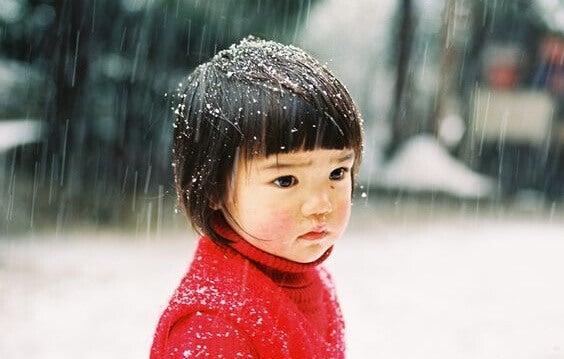“I lost my father when I was 8, almost 9 years old. I haven’t forgotten his deep, loving voice. They say I look like him. But there’s one thing that sets us apart: was my father an optimistic man?The testimony of Rafael Narbna begins, a man who lost his father at a very young age, a situation that has marked him forever and which clearly shows that the worst thing that can happen to a child is that his parents die.
Do children establish a special bond in childhood, in most cases positive and unconditional, with their parents?Thanks to them, they have the first contact that will mark their future emotional relationships, they are their support, their role model, those people who help him clarify an unknown path, since they are new to the game of life. Dying too soon can be a very hard blow that will affect you very deeply.
- What would have happened if my parents hadn’t died?What would you think of my current life?These are unanswered questions that often accompany children who have lost their parents at a very young age.
- Too fast.
“It was incomprehensible to me to think that my father could no longer walk with me in the park. ” – Rafael Narbona-
Rafael Narbna is well aware of the difficulty of losing his father at 8 years of age from a heart attack, the misunderstanding of this unexpected fact led him to wonder “why me”. Seek solitude in the playground when in fact it should have done so. have fun with other kids at school.
You might think, from an adult point of view, that children forget quickly, but this is not true for important events, they live very intensely everything that happens, and the footprint left by each event will be very difficult to erase. From this moment, seeing other parents with their children and rejection of this reality so unknown and causing as much pain as death can be dragged throughout life.
The fact that the parents die will trigger a grieving process whose stages will last more or less depending on the person and the importance of this situation; anger, disgust and initial denial must subsequently be replaced by sadness and acceptance. In the case of Rafael Narbna, anger and disgust took a long time to disappear and were particularly intense during adolescence.
It is very difficult for children to understand that people and living things end up dying and that means they will never come back.
Rebellion against authority and non-compliance with schedules are sometimes not a sign of lack of education, but of terrible pain that resides in a person, it is a way of expressing discontent with something that continues to cause rejection.
Like many children who lose their parents, Narbna has ceased to be in constant struggle with the world and express his anger, to become a teacher, journalist and writer like his father. In his pain, he idealized his father, to the point that his life changed when he decided to follow in his footsteps, however, sadness was still there and he had to go through a healing process in which he could see his father as imperfect, but real.
When a father dies, children cling to that idealized image, while facing a world that has taken those they loved the most. Sometimes they end up following in your footsteps with a very deep desire, not to replace, but to feel that loved one more closely. However, there is still a sadness and deep resentment against the world that one day took away this beloved figure.
The family should never hide their sadness and it would be nice to include the children in the mourning.
Children suffer greatly if they lose one of their parents at a young age, so allowing them to express their feelings, talk about it and how they feel will be important to prevent these emotions from getting stuck inside without meaning. they are more likely to emerge in the latter stages of their lives with much more strength and fury, when we are less able to help them.
We cannot prevent it from happening, but if we can strengthen ourselves with every blow we take, it will be an opportunity for us to learn to be resilient, to mature our rhythm and to realize that life is not against us, but is so: random and capricious in many cases. In the end, thanks to acceptance, this father’s sadness will become a slight nostalgia.

